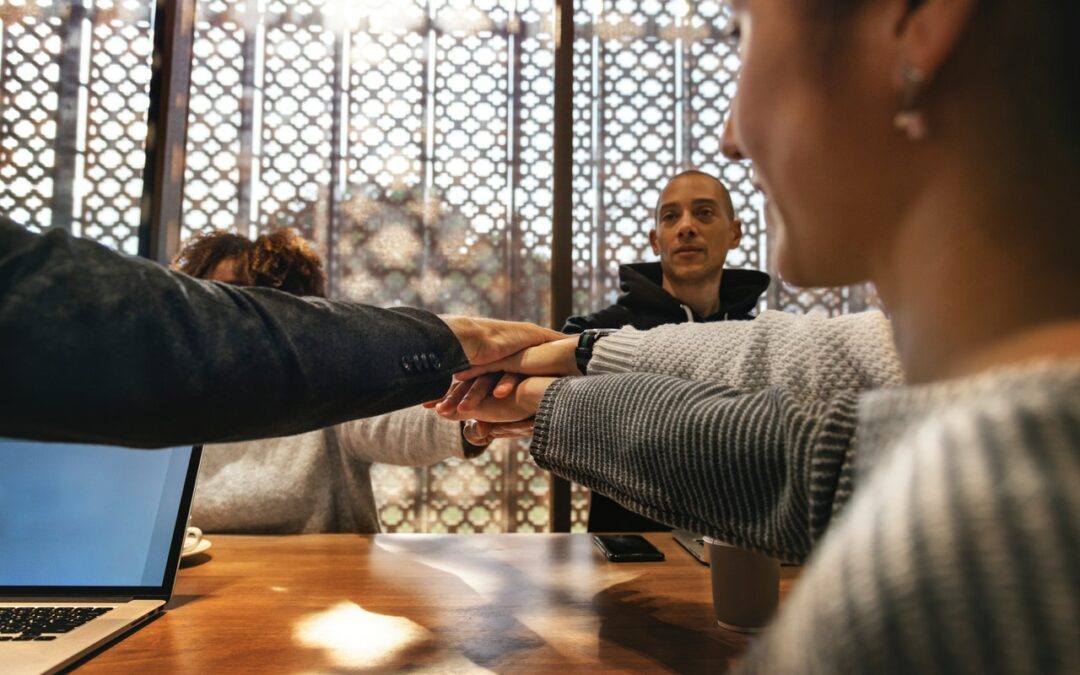
Moving Forward Powerfully In-Spite of Limitations
Moving Forward Powerfully In-Spite of Limitations
Ever worked with someone who doesn’t remember to follow through on things? The person who makes it a habit to procrastinate and is often not organized. The one who waits for the last minute to work on that very important project? Ever wondered what causes a person to be this way?
It’s easy to judge someone as lazy, and to even lose trust in a colleague who is unreliable or doesn’t show up fully. It’s harder to understand the cause of such behavior and support that person to change.
Imagine as a child being told that you won’t amount to anything. Imagine being called null and void. Imagine being surrounded by family members who encourage you to play small, because they believe that being successful is evil. What a head trip, right? What do you think happens to that child when he/she becomes an adult?
Our upbringing has a lot to do with how we show up in the world as adults. It’s why the personal development industry is booming. Everyone is looking for answers, for gurus, for the elixir.
“Regardless of the limitations from your upbringing, the choices you make as an adult are yours, and totally on you.”
Shifting out of beliefs that we created as children that don’t serve us as adults isn’t easy. It’s the hardest, most sacred work we can do. However, finding excuses for staying in a limiting mindset is a choice.
My recent podcast guest Carlos was told by an uncle he was null and void. He was told he would not amount to anything. These are not idle words to a child. Before the age of 9 a child encodes his/her beliefs based on what they learn and observe. This continues as we evolve towards adulthood.
Raising children isn’t just about giving them shelter, food, and a physically safe home… we owe them an emotionally safe home too. The emotional safety of our children should be paramount to all we do as parents, educators, and mentors. The words you use around children can empower them or destroy their exuberance for life.
“We wouldn’t walk around with a sharp knife in our hands for fear to cut someone. Using disparaging words around children is just as lethal and hurtful as a sharp knife.”
Words can cut worse than a knife. Physically you can heal from a cut, but an emotional cut can stay with you for a long time and shape your reality.
As a life coach, I don’t get into the psychological needs of my podcast guests. When appropriate I recommend a therapist, but I always challenge the guest on the reasons why they choose to allow those childhood experiences to hold them back.
There is a paycheck associated with holding on to childhood hurts. There is a benefit we choose to hold on to. Many times, it conveniently helps people excuse themselves from being accountable. You’ll hear things like “I do this because of what happened when I was 12 years old”.
That is as good as the drunk person who kills someone while driving, saying: “I didn’t intend to kill anyone, I was drunk”. The choice to get drunk was made consciously. The choice to not practice moderation was made consciously.
I want to acknowledge that emotional wounds are often hidden in the subconscious, and at first the choices made aren’t always conscious. The thing about emotional wounds is that the choices one makes usually create repetitive results.
The repetition of negative outcomes is the visible sign and should serve as an alarm that something is wrong. The problem is, that just like an addict doesn’t always acknowledge he/she is an addict, the emotionally scarred can easily blame circumstances for the outcomes in their lives.
“The paycheck for staying in a limited belief state of mind is that you never have to take responsibility for your life — you choose to be a victim.”
Staying in a victim mindset is a choice. Doing the hard work to move forward powerfully is also a choice. Doing the sacred work to overcome the childhood emotional scars is like going to war with your shadow self.
That brings me back to the conversation with my Rant & Grow podcast guest Carlos. I spoke to him about tapping into one of the four archetypes that can help you move forward powerfully in any situation.
The King/Queen serves for the greater good. They are motivated by the desire to lead and create abundance for everyone they care about.
The Warrior fights for worthy causes, breaks free of limitations and bad situations for themselves and others.
The Lover gives without expectations and creates a safe space for others to vulnerably grow and find peace.
The Magician discovers the world in the grey areas of life and seeks to patiently learn understanding in order to grow.
Each of us shift in and out of all these archetypes at different stages of our lives. Sometimes we tap into the shadow version of these archetypes, like a King/Queen who abuses the power and acts like a tyrant.
I suggest getting familiar with the Jungian archetypes as a way to understand what is right for you, at any given moment to move powerfully through life.
I asked Carlos, what archetype would help him move forward powerfully in his life, in-spite of the emotional scars, and childhood wounds. He chose the King.
Everyone aspires to be the King/Queen. In the case of Carlos that is his aspirational archetype. If you are stuck, you may need to tap into the warrior first.
The warrior will show up no matter what the noise, no matter what the pain, no matter what the obstacles. The warrior can get you past any obstacle as long as you are clear about what you are fighting for.
In the case of Carlos, he is fighting to make a difference, to be a success in his life. He is fighting to prove that having it all isn’t evil, quite the contrary it is a sign of energy, or Light in your life.
At the end of the day, you can make excuses for yourself about how you were raised, how hard it was, and they would be very valid reasons to stay stuck.
You can create such a powerful narrative, that it becomes a self-fulfilling prophesy. You’ll attract everything that validates your narrative, and stay stuck, a victim.
Alternatively, you can make the choice to achieve greatness. The formula for achieving greatness is simple: “PROACTIVE ACTION”. Do the work! Just be the one who defines what greatness is, otherwise, you will end up pursuing someone else’s version of greatness.
Self-awareness will help you make conscious decisions. See a therapist, work with a coach, speak vulnerably with trusted mentors, do all you can to become aware of your behaviors, but go into action in-spite of all the limitations, this will help you show up powerfully in your life.
Check out the coaching session with Carlos and see what commitments he made to move himself powerfully in his life. Maybe you’ll discover some wisdom for your own life. You can listen to the podcast right here.




Recent Comments